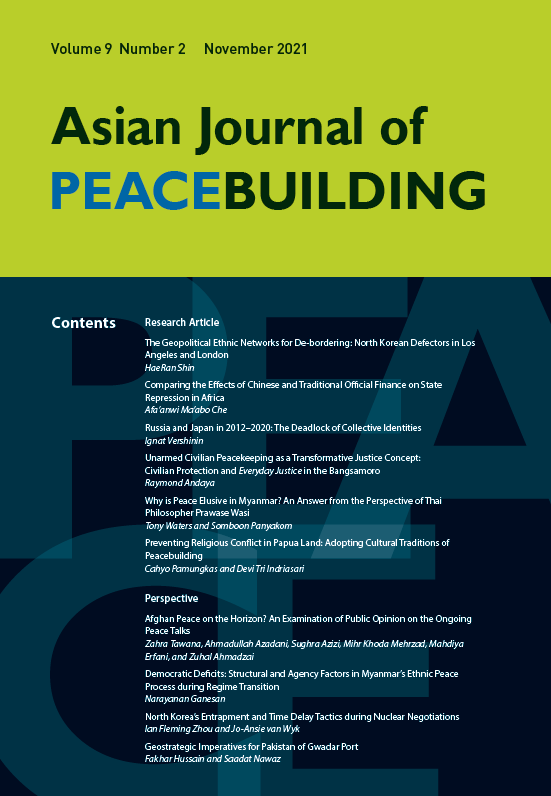Weaker parties in a negotiation can change the assumed structural outcome of the negotiation by using strategies such as time delay tactics, which lead to entrapment. In this article, the Six-Party Talks are evaluated empirically to explore the utility of applying this bargaining tactic insight into international relations. The article applies Galin’s (2015) five stages of time delay tactics to the fifth and sixth rounds of the Six-Party Talks, with a focus on the triangular relations between the United States, South Korea, and North Korea. The article shows how North Korea as the weaker negotiating party used the time delay tactic to affect the fifth and sixth rounds of the Six-Party negotiations in its favor. North Korea’s use of several tactics included slowing down negotiations as much as possible, avoiding reaching a final agreement, prolonging negotiations by diversion, dragging out the negotiation process until some external or internal change occurs, and exhausting opponents until they are ready to concede. These tactics ultimately entrapped North Korea’s opponents resulting in the unsuccessful outcome of the Six-Party Talks.
Back Issues
Perspective
North Korea’s Entrapment and Time Delay Tactics during Nuclear Negotiations
Ian Fleming Zhou and Jo-Ansie van Wyk pp. 411-426 doi: 10.18588/202108.00a105
PDF Download

